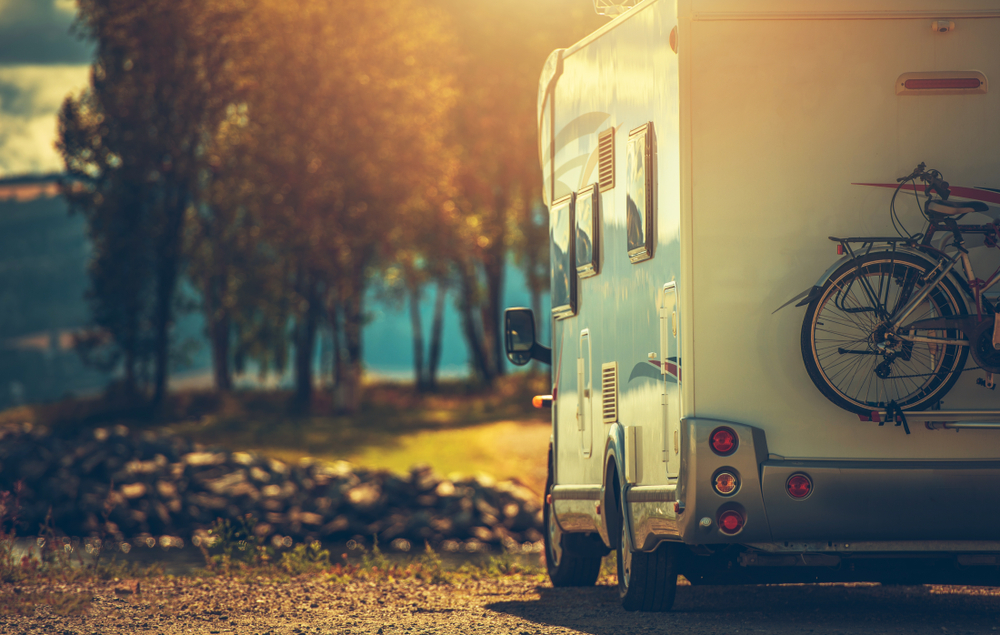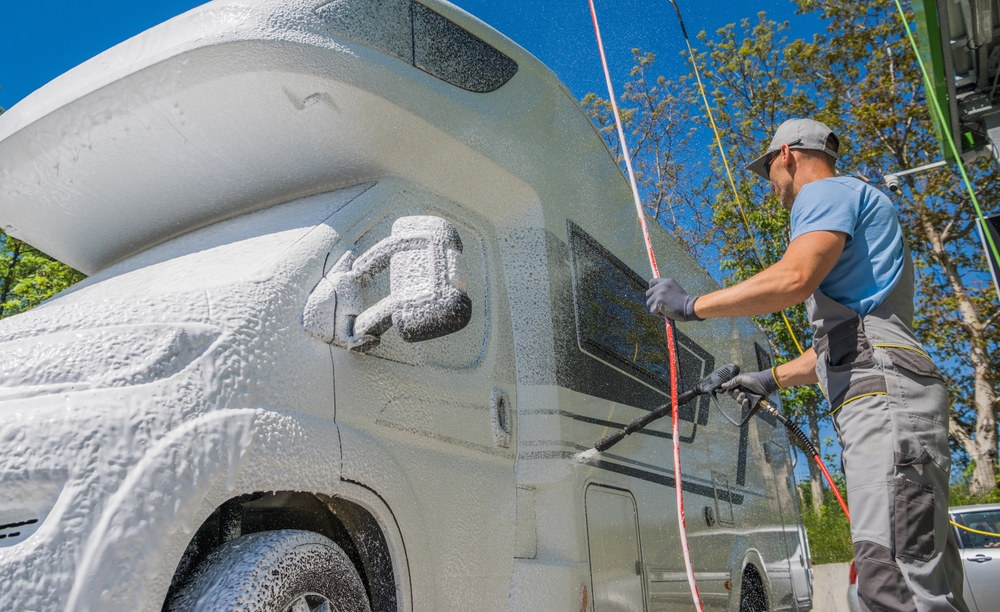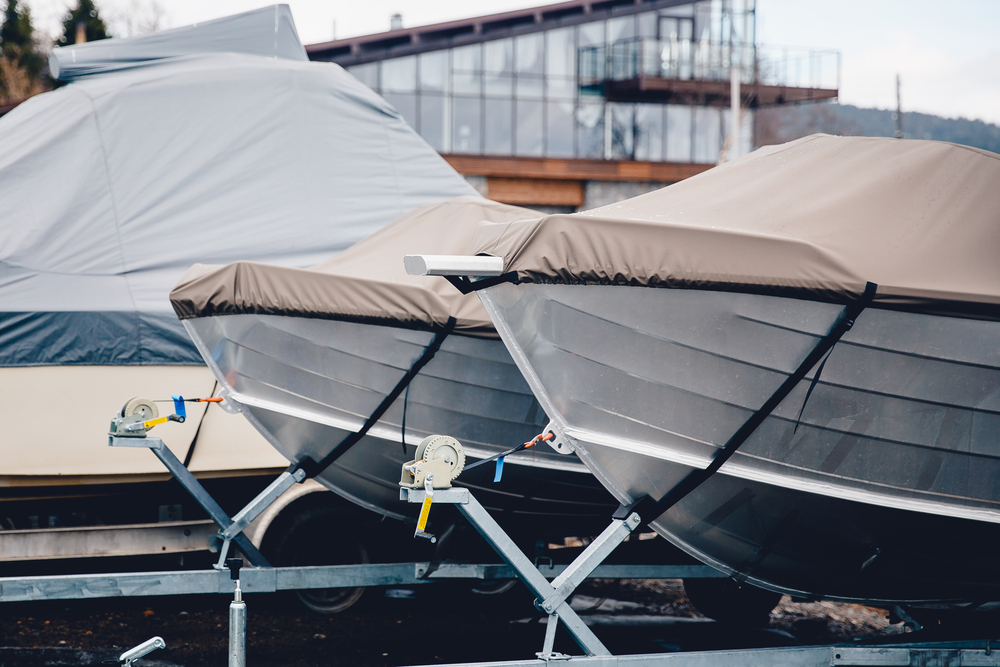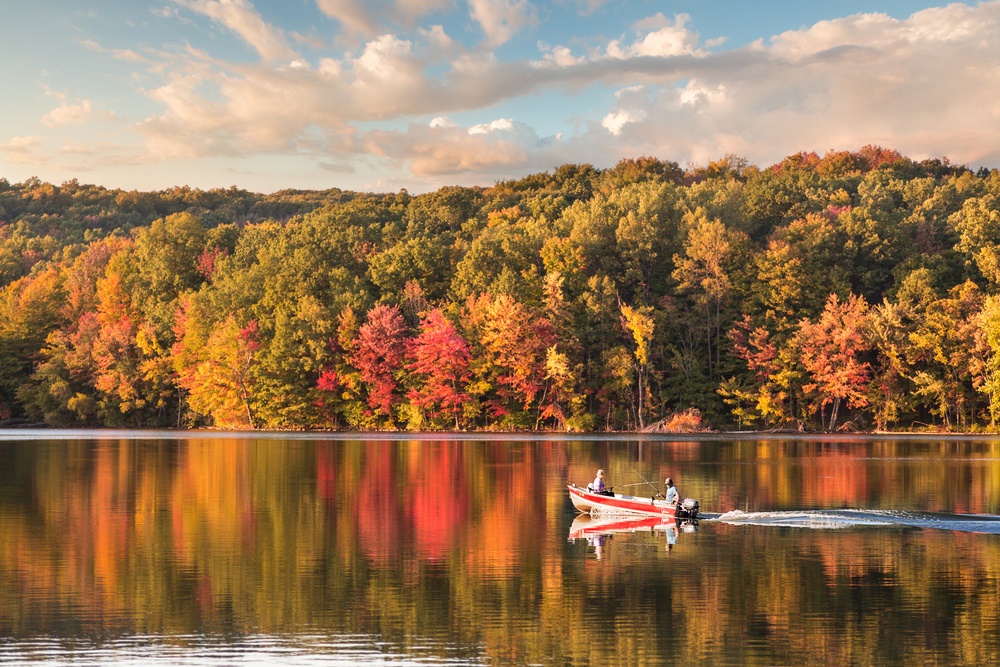
If you own a boat or an RV, you know how fun and exciting they can be! Millions of Americans look forward to sharing time with family and friends out on the water or exploring the highways of the United States with their RVs. Of course, these adventures don’t last forever, and for most people, using a boat or RV in winter isn’t possible. If you need to prepare your boat or RV for the winter, the top tips on how to prepare boats and RVs for winter storage below will give you the information you need to store yours successfully. The better you prepare your boat or RV for winter storage, the fewer problems you’ll face next season.
This guide provides general advice on preparing boats and RVs for winter storage. However, the needs and specifications for boats and RVs can vary widely based on their make, model, and the conditions in which they’re stored. Therefore, always refer to the user manuals and maintenance guidelines provided with your specific boat or RV. Our tips serve only as a helpful starting point, the manufacturer’s recommendations are always come before any of these tips. Please contact your manufacturer if you need any additional assistance.
RV and Boat Winterization
Tip 1. Clean Your Boat or RV from Top to Bottom

Although it might not seem like a big deal, storing your boat or RV in a dirty condition can come back to bite you in the spring. Dirt and debris can leave behind stains you can’t remove and cause mold and mildew to form. Also, food stains can attract insects and rodents that can destroy your boat or RV’s interior. Saltwater on the surfaces of your boat can cause rusting and corrosion during the winter. It’s best to thoroughly clean the interior and exterior of both vehicles to prevent any problems during winter storage.
Tip 2. Change All Fluids and Filters
If you have an RV, change the oil and filter in the engine and generator. Putting in new oil and filters will help prevent contaminants from forming that could damage the engine of either vehicle.
Tip 3. Drain Water Hoses
Larger boats and most RVs will have a water system that should be drained for winterization. That way, if your boat or RV is exposed to frigid temperatures, there won’t be any water inside the water hoses to crack, burst, or otherwise break them.
Tip 4. Add Fuel Stabilizer to Your Gasoline
Not only can the fuel in your boat or RV’s fuel tank deteriorate during the winter, but deterioration can also clog the system. Add the proper fuel stabilizer to your gas tanks before winterization to prevent this. Then, run the engine for a minute or 2 to be sure the fuel stabilizer circulates fully through the fuel lines.
Tip 5. Use Wheel Covers to Protect Your RV or Trailer Tires
New wheels for an RV can be costly, and the same can be said for boat trailers (although they usually have fewer). To protect both and ensure they last as long as possible, purchase fitted wheel covers and use them during the winter to protect your RV and boat trailer tires.
Tip 6. Seal Intakes and Exhausts to Prevent Rodent and Insect Infestation
Anywhere on your boat or RV that is either an exhaust or an intake port should be sealed to prevent rats, mice, and insects from entering and causing havoc. Whatever cover you use should fit snugly because rodents and insects are tenacious and will try as hard as possible to get inside.
Tip 7. Cover Your Boat with a Heavy-Duty Boat Cover

Most RVs are too big to cover, but it should be a priority unless you have a huge boat. This is especially true if your boat’s exterior is exposed to the elements. Sun, wind, snow, rain, and sleet can cause significant damage to your boat if it isn’t covered for the winter.
Tip 8. Remove Your Boat’s Battery
Start your RV’s engine regularly during the winter and let it run for a few minutes while in storage. However, that’s more difficult to do with a boat, which means the battery might run down while it’s stored. To prevent that, remove the battery and put it in a safe place in your home. Even better, put it on a trickle charger so that, come spring, it’s fully charged and ready to go.
Tip 9. Inflate RV and Trailer Tires to their Proper PSI
Inflating the tires on your boat, trailer, or RV to their recommended PSI is essential for winterization. It will prevent flat spots, ensure the tires can support the weight of your boat or RV, and prolong their useful lifespan.
Tip 10. Repair any Damage, Especially Holes in Your RV’s Roof
Water that gets into cracks or holes and then freezes can cause major damage to your boat or RV. Therefore, repairing holes, cracks, chips, or large dings in either one is a good idea when winterizing your boat or RV.
Tip 11. Store Your Boat or RV with SecurCare

All of the tips we’ve given will only do good if you store your boat or RV in a storage facility that’s safe and secure. For that reason, storing a boat or RV with SecurCare Self Storage is what we recommend!
Store Your RV or Boat Safely and Securely in Winter with SecurCare
At SecurCare, we offer the best safety and security features in the storage industry. That includes 24/7 video security cameras, electronic, keypad-controlled front gates, and on-site managers monitoring the premises. Well-lit parking lots at night are also an advantage, as well as drive-up storage units.
Our vehicle storage is the best in the industry, and many of our self-storage facilities offer covered RV storage. Even better, our storage facilities feature wide lanes so that getting in and out with your boat trailer or RV is easy and stress-free. If winter is on the horizon, and you need to store your boat or RV for the season, you can reserve your storage space, parking space or storage unit online in minutes with SecurCare. No deposit or credit card is needed, and your storage unit or parking space will be ready to go when you arrive!